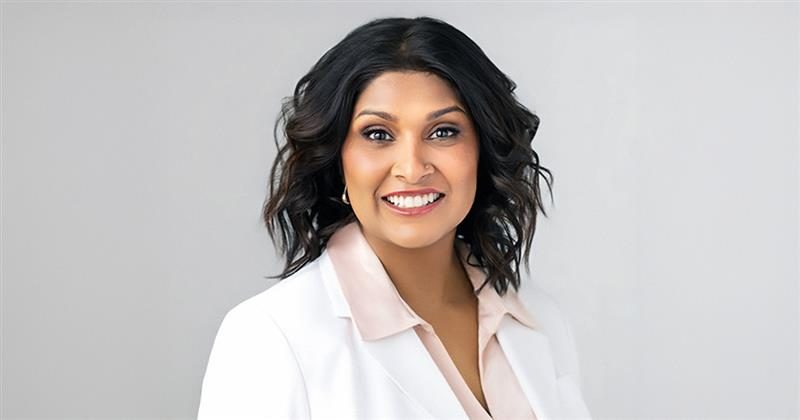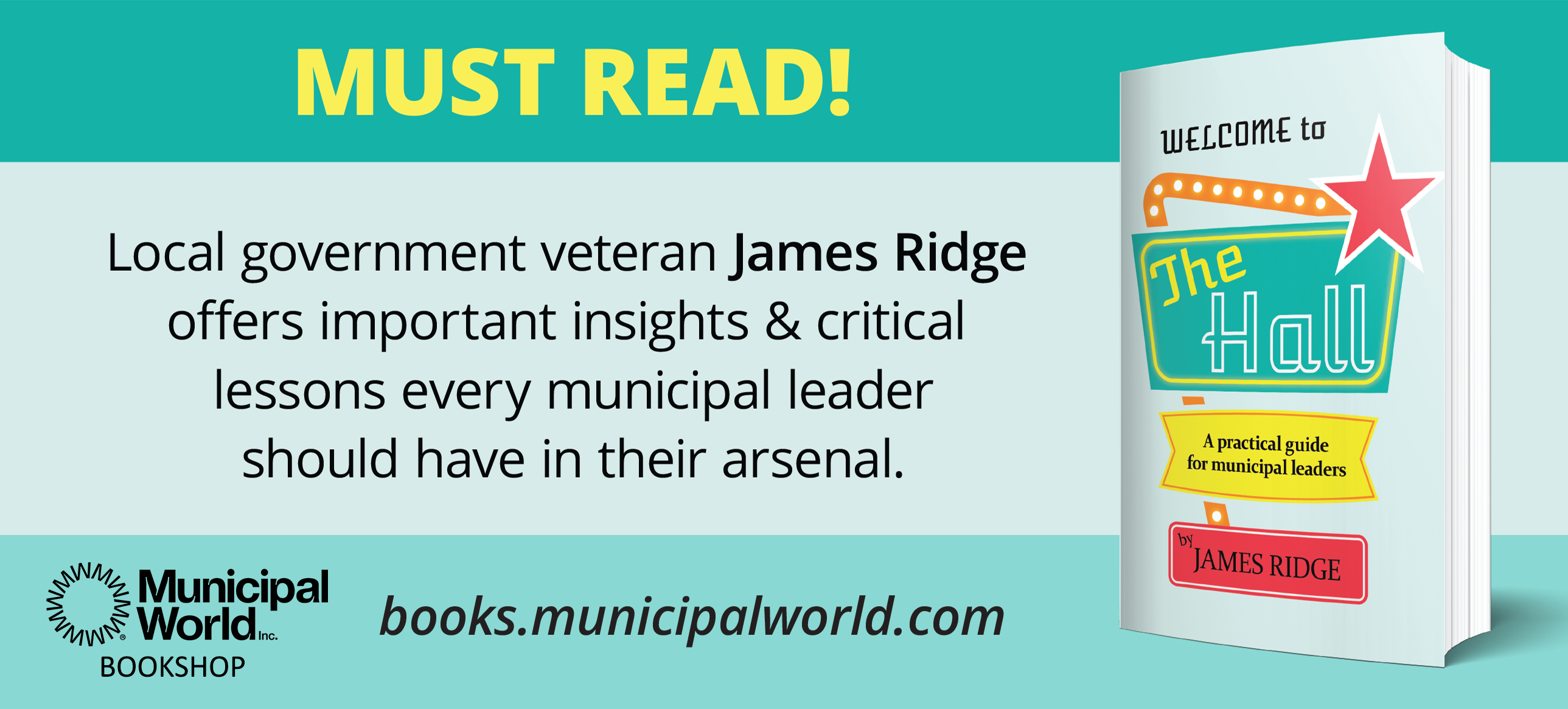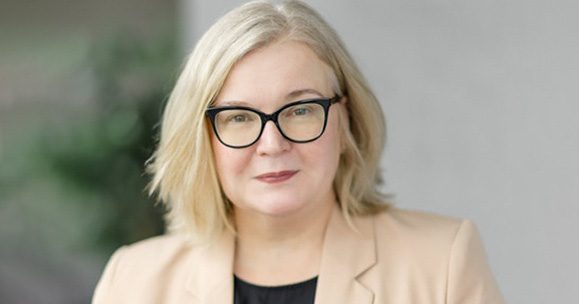Corrine Rahman: Championing civility, inclusion, and public service
 During this summer’s Association of Municipalities of Ontario conference, London Coun. Corrine Rahman joined Municipal World’s MW Shares podcast to discuss the evolving landscape of municipal politics, the challenges of representation, and the enduring power of service. Photo: Corrine Rahman
During this summer’s Association of Municipalities of Ontario conference, London Coun. Corrine Rahman joined Municipal World’s MW Shares podcast to discuss the evolving landscape of municipal politics, the challenges of representation, and the enduring power of service. Photo: Corrine Rahman
At the Association of Municipalities of Ontario (AMO) 2025 Conference in Ottawa, the air buzzed with policy talk, strategic planning, and the unmistakable energy of municipal leaders shaping the future of their communities.
Among them was London Coun. Corrine Rahman, who joined Municipal World’s MW Shares podcast to discuss the evolving landscape of municipal politics, the challenges of representation, and the enduring power of service.
Rahman’s journey in municipal politics spans over a decade, beginning in the mayor’s office as chief of staff to former mayor Matt Brown. But as she reflected on her transition from staffer to elected official, she noted a stark shift in the tone of political discourse.
“What I’ve noticed is a … change in decorum, the change in the tone, the civility as we’re calling it now of politics,” Rahman said. “We’ve all faced an angry constituent before. It’s just at what level that anger rises to now and how that anger presents itself. And so that has been a different experience for me.”
Realities of Political Divisiveness
Rahman described her comfort engaging with residents in public spaces like Costco, where she often finds herself “holding court” for hours.
She often has “some very interesting conversations” in those Costco aisles. Yet, she acknowledged that not all interactions are pleasant. Some have been “scary at times,” Rahman said, underscoring the growing divisiveness in political spaces. And it’s that level of divisiveness that she has increasingly seen come forward.
The challenge for Rahman in speaking about these types of situations is that she never wants to discourage women and other racialized people from running for office. It’s a challenge, Rahman said, and it is why she is always looking for strategies to make the political space a safer environment for everyone.
The rise in hostility, particularly online, has prompted Rahman to question the role of media platforms in perpetuating harmful discourse. She pointed to comment sections in local publications like the London Free Press, where misinformation and personal attacks often go unchecked.
“It’s free rein; people can say what they want,” Rahman said. “No matter what I tell myself – ‘Don’t read the comments; don’t read the comments,’ – I end up reading the comments. I’d rather know than not know. And I find part and parcel of politics is knowing what people are talking about – what’s relevant.”
Strategies for Safety in Public Life
Rahman’s experience is not unique. As a woman and a racialized person in politics, she faces an added layer of scrutiny and vitriol. The gendered nature of political attacks is a troubling reality she navigates with caution and resilience.
One thing she has learned is the need to have what she calls a “healthy sense of boundaries” for herself. Rahman knows what she’s personally comfortable with and what she’s not.
She’s developed strategies to protect herself. From door knocking with companions to maintaining clear boundaries in her public and private life, these precautions – while necessary – serve as a sobering reminder of the risks faced by women in politics.
As such, she plans her day around her schedule. But when the level of public venom is high, she often changes up her plan. It isn’t something she ever thought she would have to do before entering politics, and it isn’t how she would like to deal with situations.
“One of the things I did have to come to terms with was I don’t share as often about events I’m going to; I share after the fact,” Rahman said. “That way it’s not on record where I’m going to be before I’m there sometimes.”
Youth, Diversity, and Representation
Despite these challenges, Rahman remains committed to encouraging others – especially underserved communities – to step into leadership roles. Her mentorship efforts include a youth team of 40 volunteers who shadow her, canvass, and engage in community service.
Rahman said it has been wonderful to see that level of engagement – not to mention the number of hours they’ve collectively been able to put in.
As such, she hopes she is inspiring the individuals on her youth team, encouraging them through those endeavours to make it known how accessible this type of community engagement can be.
Rahman also offers free training to aspiring candidates, sharing insights on fundraising, canvassing, and navigating the political landscape. Her goal is to demystify the process and empower others to run.
In explaining why this is so important to her, Rahman reflects on her 2020 election. She recalls opening the newspaper the next day and seeing an article on the winners. What hit her the hardest was that in her moment of celebration she also realized she was the only visible minority elected to London council.
That realization brought both pride and a sense of responsibility. With only five women on council, Rahman felt the weight of representation and the need to champion diverse voices.
“That felt like a lot of weight. It felt like I needed to carry that responsibility of those that didn’t make it with me,” she said. “It’s one of the reasons why I try to champion diverse voices in communities at city hall. I can’t say enough about the fact that we all hold a vested interest and responsibility to bring more women to the table.”
Finding Purpose in Local Politics
For Rahman, the work is not just political – it’s personal. Her commitment to service is rooted in values instilled by her parents and a belief in the transformative power of local government.
She finds fulfillment in the everyday interactions that define municipal politics: helping a neighbour solve a problem, attending community events, and connecting with organizations doing meaningful work.
People will come up to Rahman and tell her they see she was at 10 community events last week. She is quick to change that perspective, adding that she sees it like she was part of 10 opportunities to engage with organizations that are doing meaningful work in the community.
Those are the conversations that matter most to Rahman. It’s that one-off conversation where somebody brings a problem in the neighbourhood to her – something that she can help them fix.
“That’s the power of municipal government. It’s the power of the work that we do. We can do it; we can make a difference in people’s lives,” Rahman said. “Not only is it fulfilling, but it’s essential. That’s why we do this work. We do this work to give back to the communities we love.” MW
✯ Municipal World Executive and Essentials Plus Members: You might also be interested in André Nowakowski and Genevieve Cantin’s article: Prioritizing psychological wellness and DEI in municipal environments.
Sean Meyer is digital content editor for Municipal World.
Related resource materials:



